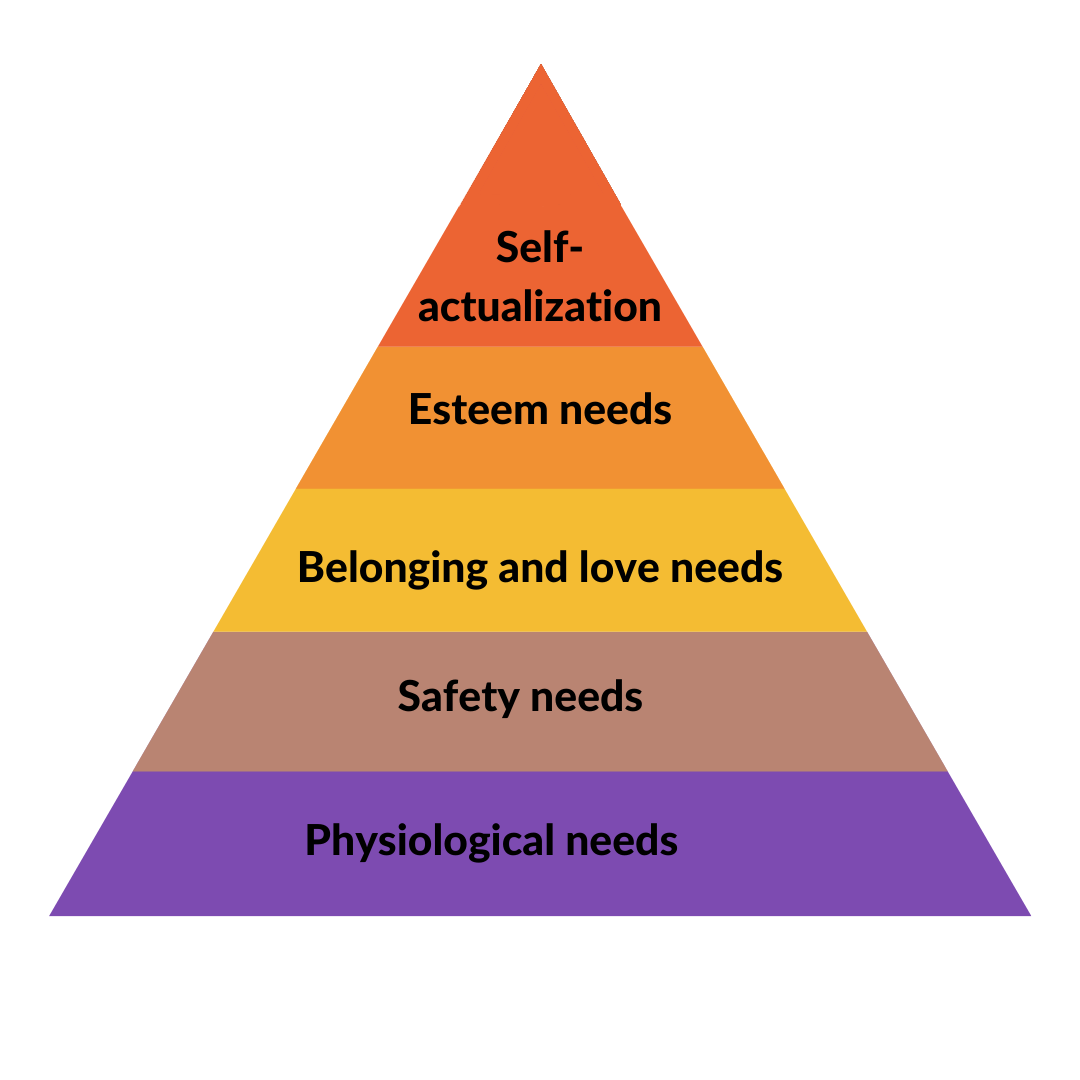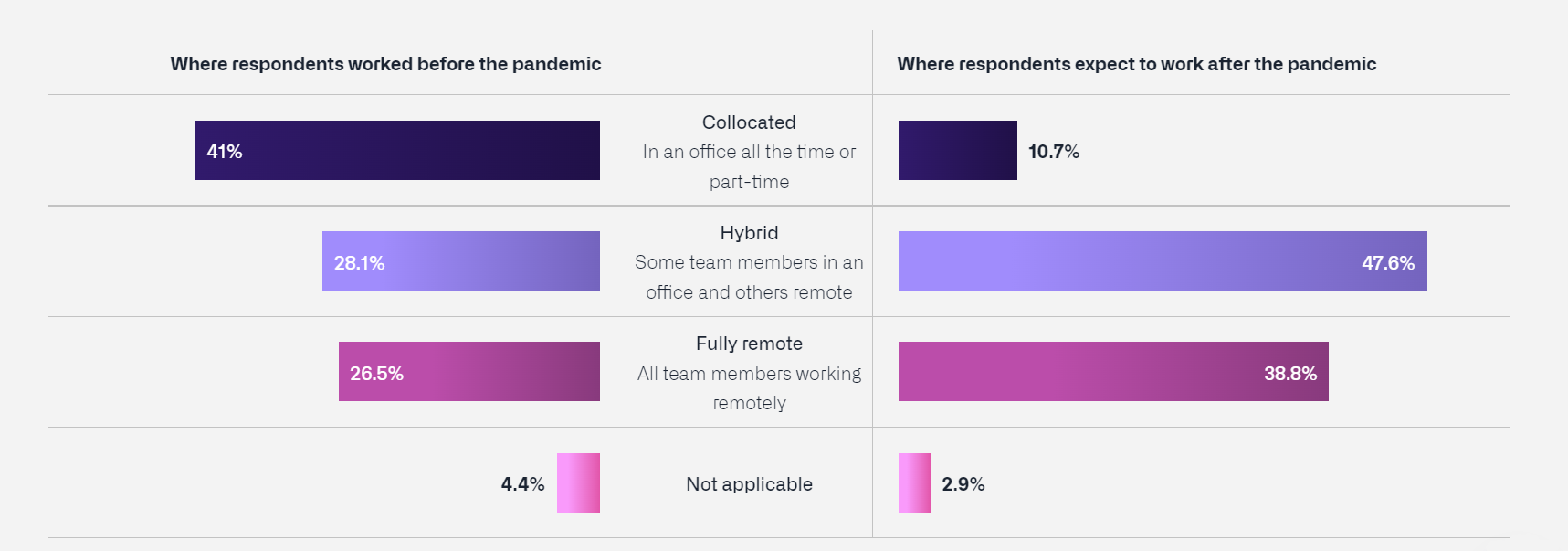Keep an employee. The challenge for 2022
The year is coming to an end and with it we expected a return to the pre-pandemic state, but reality presented a different scenario. It turns out that some changes have entered our everyday life for good and returning to the standards from before 2020 is simply impossible. Those changes affect all aspects of life, but in this article we will focus mainly on the labor market, narrowing down to the IT industry. We will try to analyze them in terms of both the employee and the employer.
In 2020 the pandemic surprised the whole world and forced, if not to introduce, then to accelerate certain changes. The unstable situation and uncertainty about what the upcoming months will bring stopped all those who planned to change jobs. This, as a consequence, had an impact on the current year, and will probably leave its mark in the following years. Remote work, data migration to the cloud or the technological revolution taking place in front of our eyes have superimposed on an increased amount of work that can be done only by qualified specialists, and those are disproportionately small to the current demand on the IT market. The growing competition for an employee has only confirmed the excellent situation that IT specialists currently have. Everything indicates that in the near future many companies will have to face the challenge of employee retention. This should not come as a surprise, because the estimated value of the IT services market for 2022 is expected to be about 5.3 trillion US dollars. The upward trend is expected to continue until 2024, with an increase of 5% per year, which in the face of the global crisis is particularly important information for companies operating in this industry. Companies with a strong specialist background will be able to compete for the highest profits. What do employers have to prepare in order to retain their specialists and thus gain new clients? To answer this question, it is necessary to find out what motivates employees.
We will start with the theory presented by the American researcher Abraham Maslow.

Maslow’s classic hierarchy of needs.
We see that on its top are the needs of self-development, belonging or appreciation of work satisfaction. The IT industry employees are one of the few groups with a relatively high degree of satisfaction with their salary. Thus, for most, the financial aspect is no longer the decisive impulse to change jobs. The most common factors influencing the willingness to change jobs are:
- repetitive, non-developing and unambitious projects
- lack of the synergy on the teamwork, frequent conflicts and the lack of possibility of codecision
Important aspect in this discussion is working out the work-life balance, because this significantly affects productivity, job satisfaction and commitment to it. There is also a growing awareness of jobseekers, choosing employers who have clear values, consistent with their own.
The State of Octoverse quotes interesting data: over 86% of respondents from the IT industry after the pandemic expect only remote or hybrid work, and thus the recruitment process itself enables this form of interview.
Starting a new fully remote job causes some trouble. The most common problem during the onboarding of new employees is communication and bonding with teammates. This can result in decreased productivity. The solution seems to be to set a transparent onboarding process, taking into account 1:1 meetings, assigning an onboarding buddy and among others, providing up-to-date documentation. However, despite these difficulties, no change of direction is to be expected, as the possibility of remote and even hybrid work has become a new practice. The changes that are taking place are also evidenced by the analysis presented by Awareson, which indicates that 9 out of 10 surveyed IT employees plan to improve their technological competences next year. It only confirms the need for self-improvement that the group we are talking about presents.
The information we have provided above should make employers reflect and take some steps now. We want to focus especially on the aspect of the need to raise qualifications by specialists, because we have prepared some excellent on-line courses on .NET related topics:
within which we discuss each of the topics listed above in a detailed way. The course authors are brilliant specialists, repeatedly awarded with MVP titles. The courses are dedicated to specialists at intermediate and advanced / expert levels. They provide students with the latest solutions and enable contact and exchange of experiences via a specially prepared platform and discussion forum. This is an excellent solution, especially nowadays when on-site training is difficult due to the remote / hybrid aspect of work. What’s more, we provide special discounts for groups of more than 10 people.
To sum up, the upcoming months and years will be a challenge for employers, especially from the IT industry. On the one hand, the fight for the client, on the other, for the employee. As the forecasts show, there is something to fight for, as the value of the market is still growing and there is no indication of changes. Investing in a highly qualified specialist is not just a cost, it is an investment for years. For employees, it will be an excellent time to start salary negotiations or look for a place where they will be able to pursue their ambitions in highly challenging technical work or count on additional profits, such as training and courses.
Source materials:
Global information technology industry forecast 2019-2022, by region
Work–life balance, retention of professionals and psychological empowerment: an empirical validation
Please Turn Your Cameras On: Remote Onboarding of Software Developers during a Pandemic


